

Hub for digital epigraphers providing access to FAIR and linked open data for epigraphy
The integration of digital humanities in the field of ancient history has generated major editorial and analytical epigraphic projects based on the diverse uses of writing in everyday life whether featured on amphora stamps for administrative usage and quality control, religiously motivated engravings in sanctuaries, Greco-Roman inscribed epitaphs, or even Pompeiian pornographic graffiti.
At the same time, large digital datasets have opened the door to the application of new methods such as Machine Learning. Working with digital methods and making use of digital tools has opened our eyes to new approaches, allowing for innovative, unusual perspectives and interpretations of Greek and Roman history, economy, and culture. There exist several large (100,000+ texts) and many more small-scale epigraphic databases and corpora. The development of the EpiDoc TEI XML standard in the early 2000s has accelerated this work and inspired the first international efforts to network the many, excellent databases and to develop common minimum standards.
The overall desirability for FAIR (Findable, Accessible, Interoperable, Reusable) data is fundamental to advance research into the epigraphic, linguistic, and material culture of the ancient world. With the increase in Linked Open Data and novel interface technologies and standards, this project will be able to create the tools and the community needed to transform epigraphic research in the digital age. Our internationally collaborative approach will enable and support innovative research across epigraphic data, and the wider linked web of data (especially archaeological data), such that all epigraphic data is increasingly FAIR for both the research community and the wider public. To that end, we aim to (1) consolidate community-wide standards (vocabularies and ontology); (2) develop the tools for community implementation of those standards (vocabulary and ontology hosting and publication); (3) host and make fully accessible the resulting linked open data published by individual projects (RDF/XML data publication).
The project team, supported and backed by a dedicated community of epigraphers, will provide the advice and training to enable alignment with agreed standards by past, current, and future projects (technical and practical support, development of best-practice networks and training materials). The PIs and the team members will illustrate the cutting-edge research potential of epigraphic linked data and its integration into the wider web of data by publications and research on Greek and Roman history, culture, and economy.
Learn More
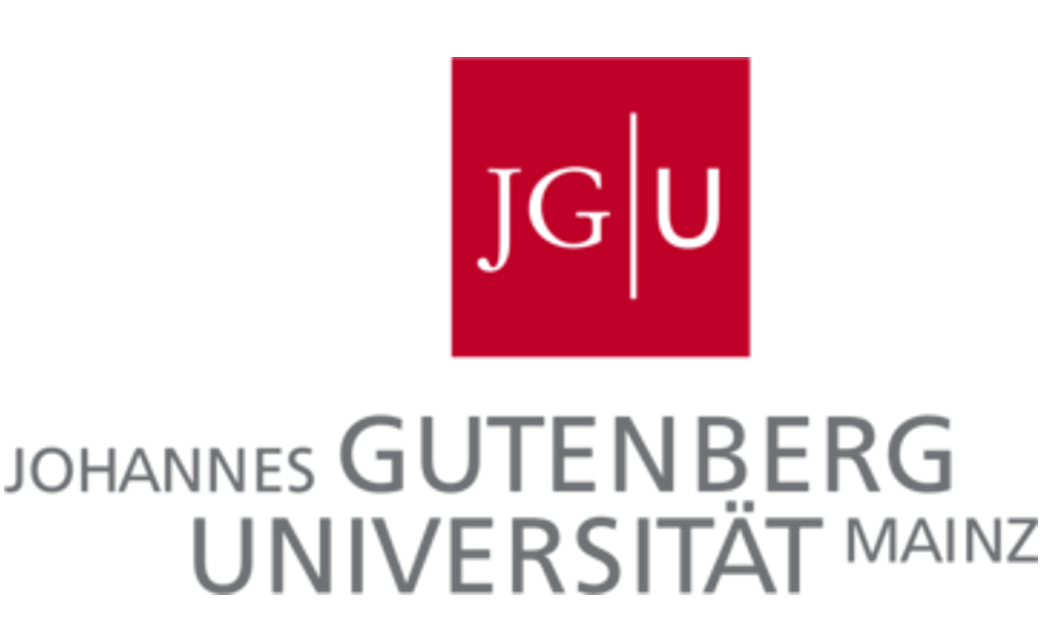
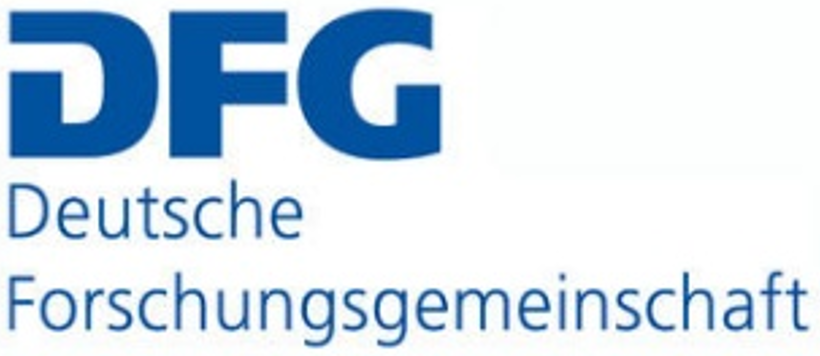

The FAIR Epigraphy project will run for 36 months from 2022-2025, and is co-directed by Marietta Horster (Mainz, Germany) and Jonathan Prag (Oxford, UK).
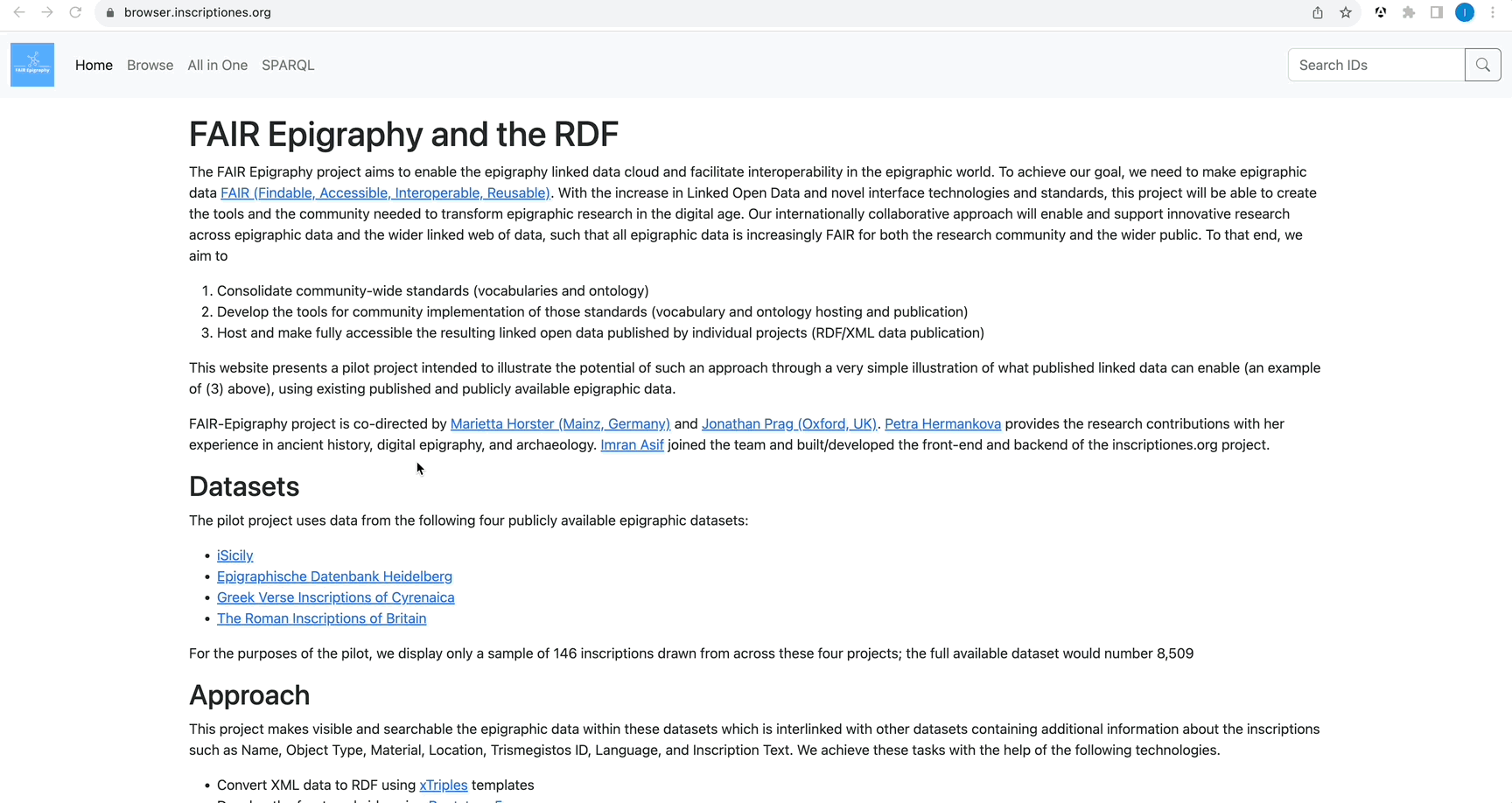
The FAIR Epigraphy project aims to enable the epigraphy linked data cloud and facilitate interoperability in the epigraphic world. To achieve our goal, we need to make epigraphic data ...
Continue reading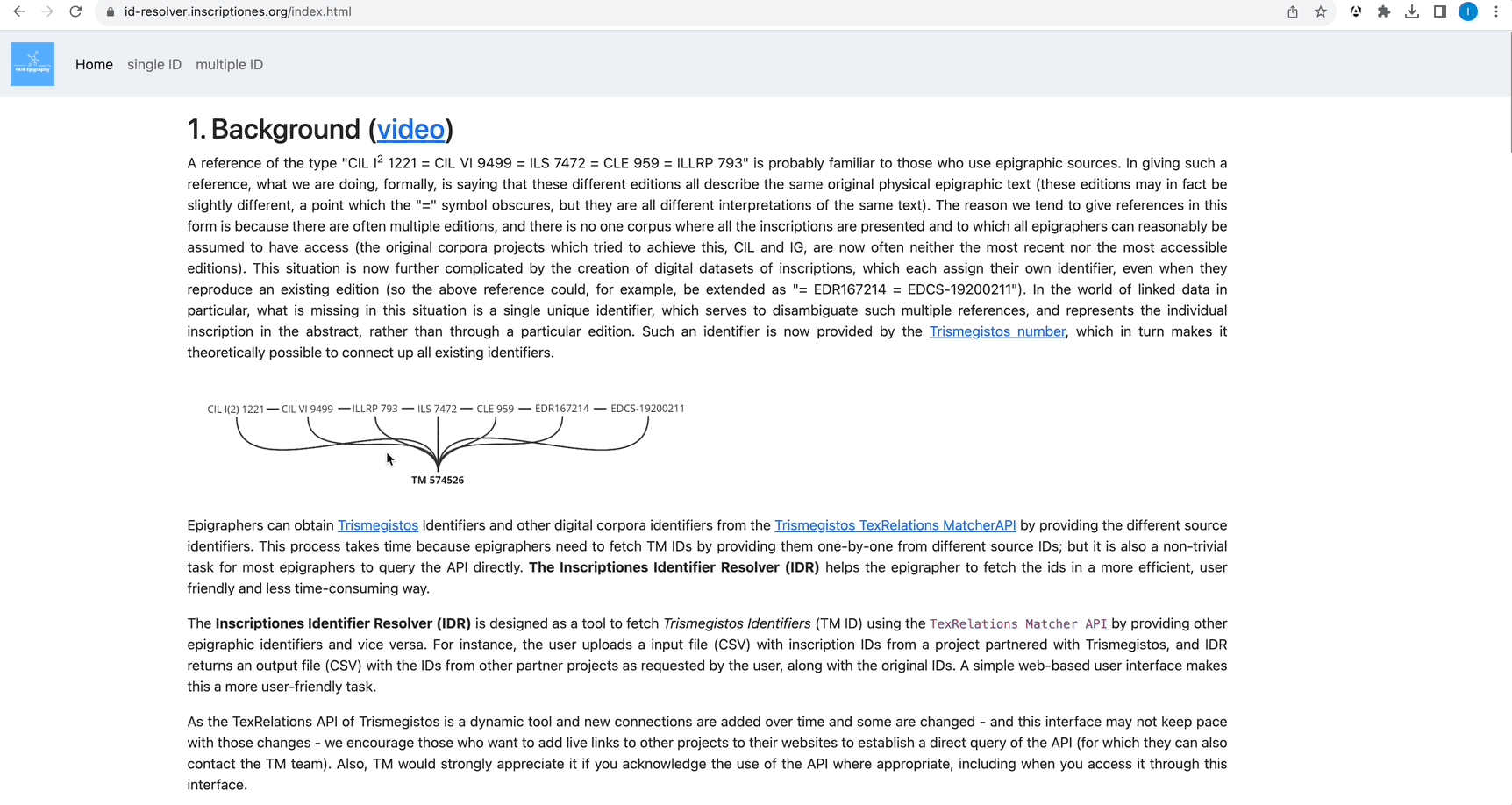
A reference of the type "CIL I2 1221 = CIL VI 9499 = ILS 7472 = CLE 959 = ILLRP 793" is probably familiar to those who use epigraphic sources. In giving such a reference ...
Continue reading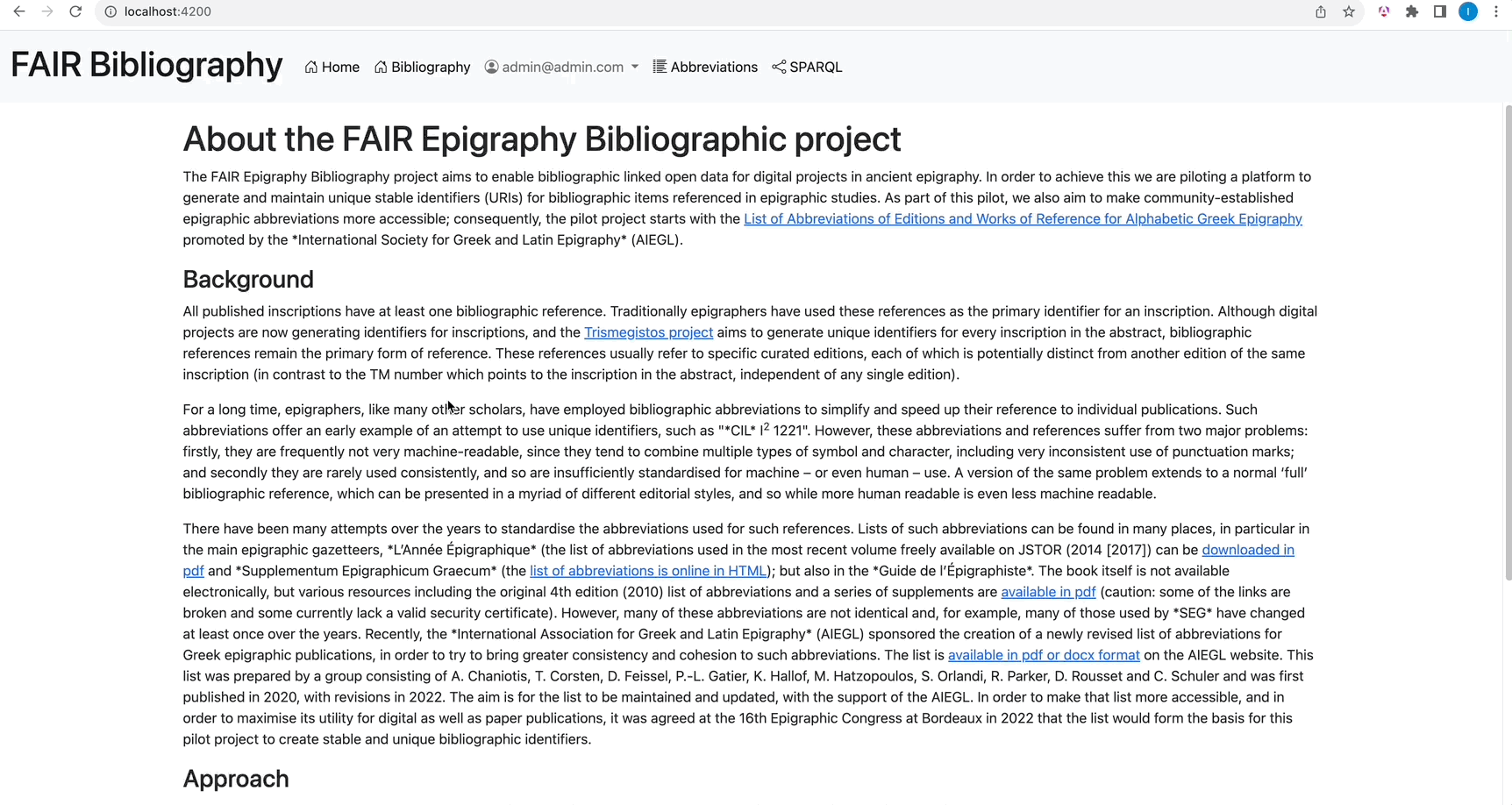
The FAIR Epigraphy Bibliography project aims to enable bibliographic linked open data for digital projects in ancient epigraphy. In order to achieve this we are piloting a platform ...
Continue reading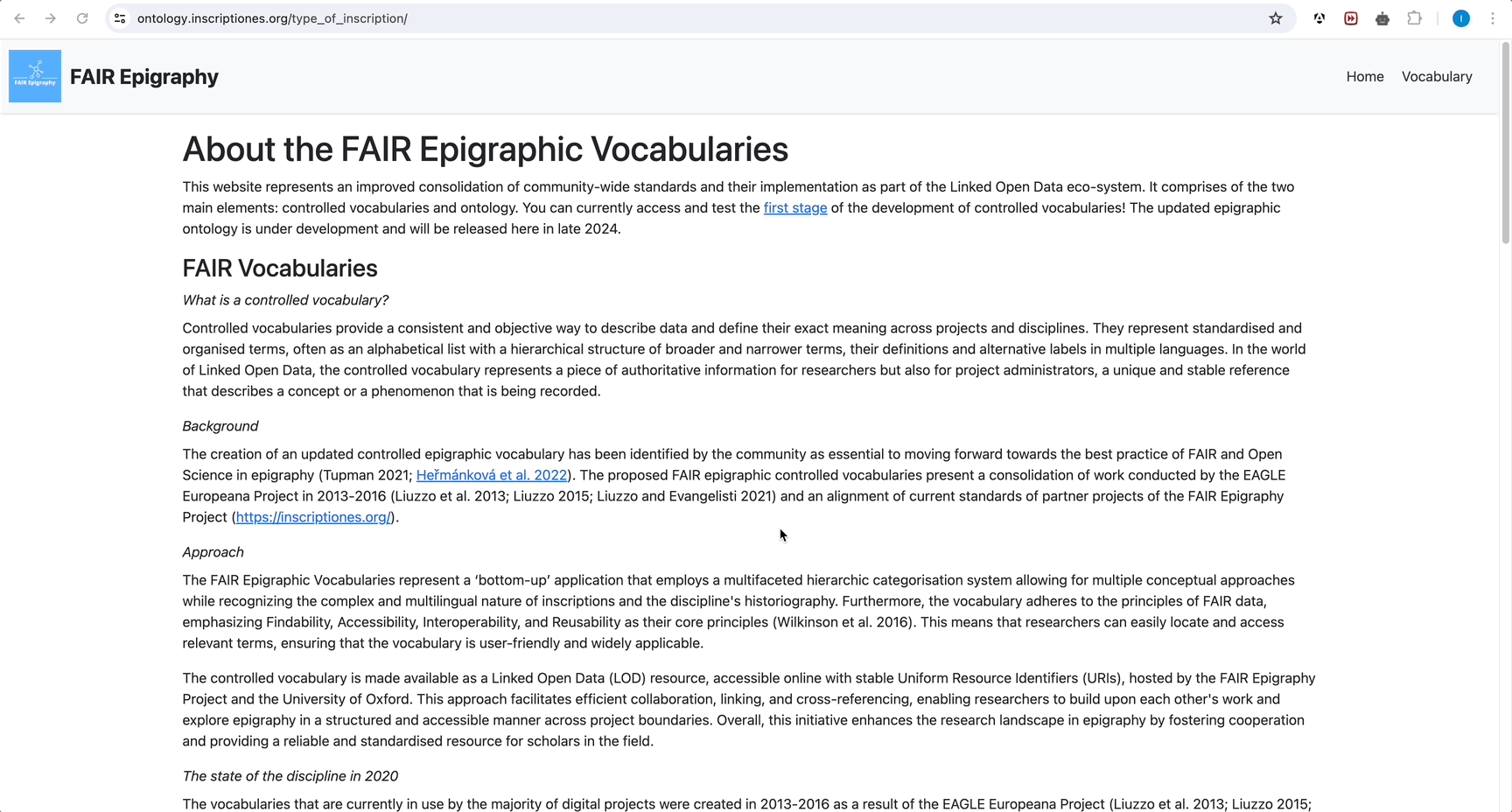
Controlled vocabularies provide a consistent and objective way to describe data and define their exact meaning across projects and disciplines. They represent standardised ...
Continue reading
Fellow and Tutor in Ancient History, Merton College, Oxford University

Professor of Ancient History
Johannes Gutenberg-Universität Mainz
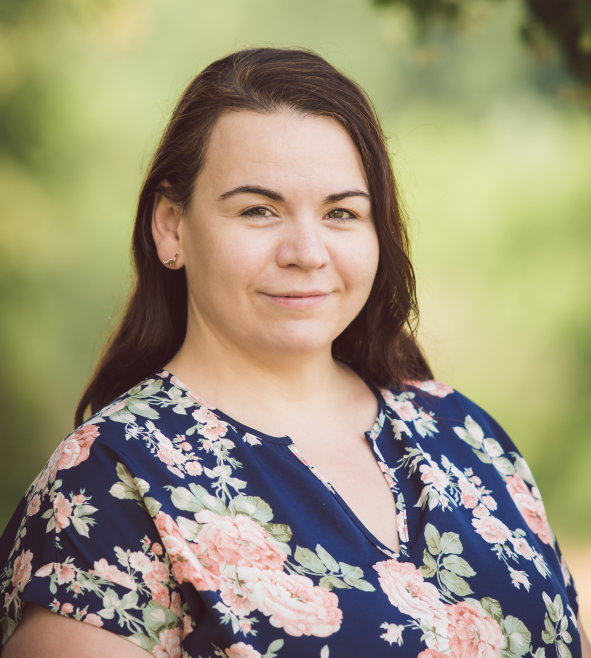
Assistant Professor
Aarhus University

Senior Research Software Engineer (FAIR Epigraphy)
Oxford University
Heřmánková, Petra, Imran Asif, Marietta Horster, and Jonathan R. W. Prag. (2025). From Fragmented Data to Linked History: Developing the FAIR Epigraphic Vocabularies. Journal of Open Humanities Data, 11(1). https://doi.org/10.5334/johd.428
Bodel, J., Prag, J.R.W. and Roueché, C. (2024). Open Scholarship: Epigraphic Corpora in the Digital Age. In Pierre Fröhlich & Milagros Navarro Cabellero (eds.), L'épigraphie au XXIe siècle. Actes du XVIe Congrès International d'Épigraphie Grecque et Latine, Bordeaux, 29 août-02 septembre 2022, Bordeaux, Ausonius, 91-117.
Heřmánková, Petra, Marietta Horster, and Jonathan R.W. Prag. (2022). Digital Epigraphy in 2022: A Report from the Scoping Survey of the FAIR Epigraphy Project (v1.0.0). Zenodo. https://doi.org/10.5281/zenodo.6610696
Bastero, Marina, Elena Duce Pastor, M. Cristina de la Escosura Balbás, and Petra Heřmánková. (2024). Epigraphy.Info VIII Workshop in Berlin: Report from the Steering Committee (v1.0). Zenodo. https://doi.org/10.5281/zenodo.12514368
Gheldof, Tom, Aaron Hershkowitz, and Petra Heřmánková. (2024). Epigraphy.Info in 2020-2023: Report on Epigraphy.Info Workshops V-VII. Zenodo. https://doi.org/10.5281/ZENODO.11241585
Heřmánková, Petra, Elena Duce Pastor, Cristina de la Escosura Balbás, and Silvia Evangelisti. (2025). Epigraphy.Info IX Workshop: Final Report. Zenodo. https://doi.org/10.5281/zenodo.15705466
Asif, Imran, Petra Heřmánková, Marietta Horster, and Jonathan Prag. (2024). Towards a FAIR(Er) Epigraphy (v1.0). Zenodo. https://zenodo.org/doi/10.5281/zenodo.11441230
Heřmánková, Petra, Imran Asif, Jonathan Prag, and Marietta Horster. (2024). FAIR Epigraphic Vocabularies: Advancing FAIR and Open Science in Epigraphy (v1.0). Zenodo. https://zenodo.org/doi/10.5281/zenodo.11440429
Prag, Jonathan R.W., Marietta Horster, Petra Hermankova, and Imran Asif. (2022). FAIR Epigraphy: Too Many Databases? Or Just Not Enough Linked Data? Zenodo. https://zenodo.org/record/7732691
Heřmánková, Petra, Imran Asif, Jonathan Prag, and Marietta Horster. (2025). FAIR Epigraphic Vocabularies: Type of Inscription (v1.0.0). With Alexandra Mullen, Scott Vanderbilt, Anna Willi, et al. Zenodo. https://doi.org/10.5281/ZENODO.17454134
Mullen, Alexandra. (2025). FAIR Epigraphic Vocabularies: Bilingualism in Epigraphy (v1.0.0). With James Clackson, Alessandro Palumbo, Petra Heřmánková, and Imran Asif. Zenodo. https://doi.org/10.5281/ZENODO.17569510
Heřmánková, Petra, Silvia Evangelisti, Pietro Maria Liuzzo, and Imran Asif. (2026). FAIR Epigraphic Vocabularies: Execution Technique. Zenodo. https://doi.org/10.5281/zenodo.18325072
Asif, Imran, Jonathan Prag, Petra Heřmánková and Marietta Horster. (2024). FAIR Epigraphic Bibliography. https://biblio.inscriptiones.org/
Asif, Imran, Jonathan Prag, Petra Heřmánková and Marietta Horster. (2022-2026). FAIR Epigraphy Website. https://inscriptiones.org/
Heřmánková, Petra, Imran Asif, Marietta Horster, and Jonathan Prag. (2025). FAIR Epigraphic Vocabularies (v1.0). FAIR Epigraphy. https://ontology.inscriptiones.org/
Asif, Imran, Jonathan Prag, Petra Heřmánková and Marietta Horster. (2023). FAIR Epigraphy Browser. https://browser.inscriptiones.org/
Asif, Imran, Jonathan Prag, Petra Heřmánková and Marietta Horster. (2022). FAIR Identification Resolver. https://id-resolver.inscriptiones.org/
Asif, Imran, Jonathan Prag, Petra Heřmánková and Marietta Horster. (2022-2026). FAIR Epigraphy GitHub. https://github.com/FAIR-epigraphy/
Asif, Imran, Jonathan Prag, Petra Heřmánková and Marietta Horster. (2022-2026). YouTube channel. https://www.youtube.com/@FAIRepigraphy
Heřmánková, Petra, Imran Asif, Jonathan Prag, and Marietta Horster. (2022-2026). FAIR Epigraphy Zenodo community. https://zenodo.org/communities/fairepigraphy/
Digital Epigraphy & Friends, meeting at XVI Congressus Internationalis Epigraphiae Graecae et Latinae. Bordeaux, 1 September 2022.
Horster, Marietta, Petra Heřmánková. (2024). Epigraphy.Info VIII. Berlin, 2-4 April 2024. https://epigraphy.info/workshop_8/
The FAIR Epigraphy Ontology Hackathon, Merton College, University of Oxford, 12 February 2025.
Heřmánková, Petra. (2025). Epigraphy.Info IX. Aarhus, 2-4 April 2025. https://epigraphy.info/workshop_9/
Heřmánková, Petra, Marietta Horster, Jonathan Prag, and Imran Asif. (2025). From EAGLE to LOD: Examining FAIR and Sustainable Practices in Digital Epigraphy. Round Table. Epigraphy.info IX, Aarhus, 3 April 2025.
Asif, Imran, Petra Heřmánková, Marietta Horster, and Jonathan Prag. (2024). Using SPARQL with Epigraphic RDF. Hands-on workshop. Epigraphy.info VIII, Berlin, 4 April 2024. https://epigraphy.info/workshop_8/
FAIR Epigraphy. (2022, November 22). FAIR Epigraphy Introduction. YouTube. https://youtu.be/S8gLl3HXGo0
FAIR Epigraphy. (2023, April 18). FAIR Epigraphy ID Resolver Introduction. YouTube. https://www.youtube.com/watch?v=DBq9K2dbY0s
FAIR Epigraphy. (2023, April 18). FAIR Epigraphy ID Resolver user guide (demo). YouTube. https://www.youtube.com/watch?v=a_MMxd_9RlE
Asif, Imran. (2024). SPARQL Tutorial for Beginners. https://inscriptiones.org/tutorial/sparql-for-beginners/
Heřmánková, Petra. (2025). How to FAIRify Your Project in 6 Steps (v1.0.0). Zenodo. https://doi.org/10.5281/ZENODO.17838576
Heřmánková, Petra, and Vojtech Kase. (2022). Temporal Uncertainty and Quantitative Research in Epigraphy: The Case of Funerary Formulae. XVI Congressus Internationalis Epigraphiae Graecae et Latinae. Bordeaux, 2 September 2022.
Heřmánková, Petra. (2025). From Stone to Computer: Challenges and Perspectives of Digital Epigraphy. Keynote. Bordeaux Summer School "Digital Archaeology", 4 July 2025.
Prag, Jonathan. (2022). FAIR Epigraphy. Classical Association Conference, Swansea University, 8–11 April 2022.
Prag, Jonathan. (2025). The Aeneas Project, AI and Epigraphy. The Futures of Antiquity in an Age of Digital Data and AI. Conference, Dept. of Classics, Stanford University, CA, USA. 14-15 November 2025.
Prag, Jonathan. (2025). Session chair. The codification of metrical forms in EpiDoc: challenges, solutions and definitive protocols. Workshop, University of Sevilla, Spain. 1-2 October 2025.
Prag, Jonathan. (2025). Reflections on a Decade of Trying to Do Digital Epigraphy (I.Sicily, Crossreads, FAIR Epigraphy). Classical Texts in Digital Media 2: Digital Methods for Editing and Studying Ancient Texts. Conference, Ca' Foscari University of Venice, Italy. 16-18 June 2025.
Prag, Jonathan. (2025). Modelling data integration in ancient epigraphy: the FAIR Epigraphy ontology and related projects. Digital Byzantine Studies: Current Methods and Future Applications. Workshop. Maison Francaise, Oxford, UK. 16 May 2025.
Prag, Jonathan. (2023). Creating Links and Sharing Knowledge: an epigraphic perspective. Linking Pasts And Sharing Knowledge. Mapping Archaeological Heritage, Legacy Data Integration and Web Technologies for Modelling Historical Landscapes. Naples, Italy, University of Naples Federico II Department of Humanities. 13-14 November 2023.
Prag, Jonathan. (2023). Round-table discussant: Interaction, aims and future of existing digital corpora. Investigating ancient multilingualism in an epigraphic corpus: the case of the Roman West. Ca' Foscari University, Venice, Italy. 12-13 October 2023.
Asif, Imran and Prag, Jonathan. (2023). First Steps Towards a World of FAIR Epigraphy. Oxford Epigraphy Workshop, University of Oxford, UK. 22 May 2023.
Prag, Jonathan. (2023). L'epigrafia siciliana: un approccio digitale FAIR. I lunedí del classico, Classics research seminar, Dipartimento di Scienze Umanistiche, University of Catania. 8 May 2023.